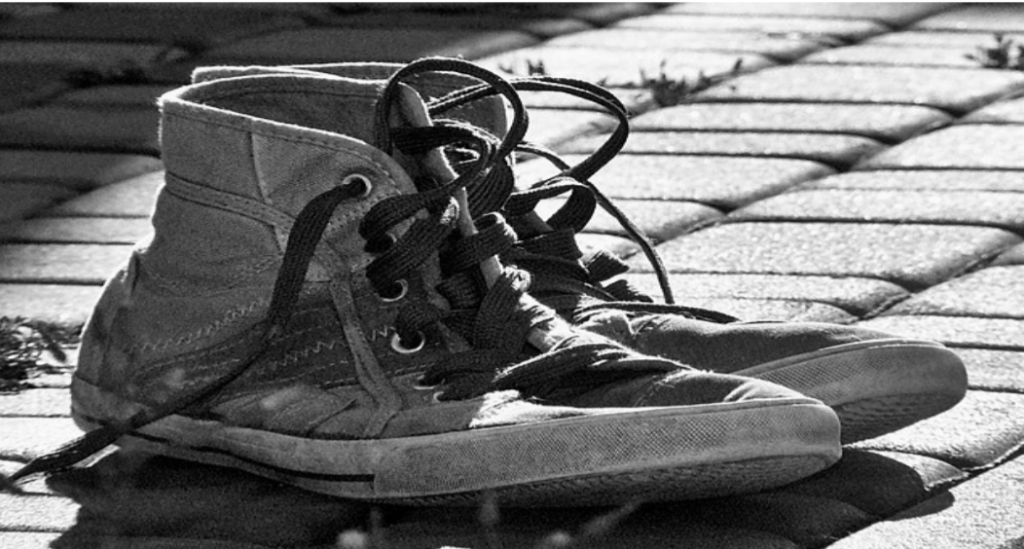
Walk a Mile in Their Shoes…
Poverty Workshop at TUSDM

The Poverty workshop is a guided, informal, engaging, and interactive learning experience that exposes
participants to the realities of poverty. Dr. Yered, Director of the Community Service Learning
Externship (CSLE) program, incorporated this into the CSLE program in year two to help better prepare
students for the vulnerable, underserved patient populations they will serve during the five –
week CSLE rotation that occurs during year 3 and year 4.
The workshop is absolutely not intended to truly reflect what it is like to live in poverty. There is no way
a workshop or simulation can recreate exactly what living on a very limited income feels like. The
purpose of this workshop is to help dental students become more aware and empathetic to what the
lives are like for many people, some of whom will be future patients. It is designed to start a
conversation.
The Poverty Workshop occurred in June and July for the D25 and DIS25 class. During the 90 minute
session, students were broken up into small groups and put into the shoes of an unemployed single
parent facing several challenging circumstances raising a child and managing money. The goal was to
financially survive one month and keep both the child and the themselves housed and fed. Each group
faced challenging situations. Collectively, they discussed options and made difficult decisions. Some
groups did not financially survive the thirty days.
Following the activity, a debriefing session was held. The groups shared their experiences. The
workshop concluded with hearing the lived stories from wonderful advocates. The advocates are
individuals who utilized services offered by Crises Assistance Ministry, a nonprofit organization in
Charlotte, NC, whose mission is to provide assistance and advocacy for people in financial crisis, helping
them move toward self-sufficiency. The advocates welcomed questions from the students and honestly
and openly answered all questions.
Following the workshop, students wrote amazing, heartfelt reflections; they were thankful that this was
part of the curriculum and described the workshop as invaluable and transformative.
“This activity/workshop was the most profound exercise I have experienced here at Tufts so far. I found it
so incredibly eye opening and informative. I feel excited, inspired and more aware of how families and
individuals are living in the U.S., and I feel prepared to provide my patients with compassionate and safe
environments where they can receive care from me and never feel judgement.”
——- Sophia Cochran, D25
“Taking part in the Poverty Simulation workshop was a thought-provoking event that brought attention
to the difficulties individuals living in poverty face and how it affects their oral health, overall well-being
and the responsibilities of healthcare providers. The simulation had a profound effect on me, highlighting
the intricate and interconnected nature of poverty and its consequences for individuals and
communities…Reflecting on the workshop, I recollected various experiences related to the topics
addressed. I have encountered patients who postponed dental visits or presented with advanced oral
health problems due to financial limitations. These encounters served as poignant reminders of the
disparities in oral healthcare and the impact of poverty on an individual’s well-being. Undoubtedly, the
workshop has shaped my approach to patient care as a future dentist… It underscored the necessity of
comprehensively understanding the social determinants of health, including patient’s socioeconomic
status. Recognizing the influence of poverty on oral health care and overall well-being, I am now more
dedicated to providing patient centered care that considers financial barriers faced by low-income
families. This may involve exploring alternative treatment plan, discussing financial assistance programs,
or collaborating with community resources to ensure fair access to dental care.”
——- Arun Babu, D25
“Participating in the Poverty simulation workshop was a profound, eye opening experience for me. As a
foreign trained dentist from South Korea, where a widely accessible dental/health insurance system
helps keep treatment costs relatively low, I had not fully grasped the impact of poverty on healthcare
accessibility and patient outcomes. But having experienced even a semblance of the constant strain of
economic hardship through the simulation, I would have made the same choice to give up my dental
care to feed my children proper food. It struck me how poverty does not discriminate – it affects
anyone, from any walk of life and can dramatically limit their access to dental care services. I am now
more attuned to the fact that as a future dentist, my responsibility extends beyond providing dental
treatment. I am also responsible for ensuring my patients feel seen, heard, and respected, irrespective
of their socioeconomic status…Yolanda and Shaun [the advocates] had simple expectations from a
dentist – empathy and being treated with the same level of care as any other patient. Despite their
financial challenges, what mattered to them was …receiving a clear explanation of why the treatment
was necessary and what the procedure would entail. They were interested in understanding the
potential outcome, such as whether they could be able to resume work after the procedure… In
essence, the poverty simulation workshop resonated with me, providing me with a newfound sense of
empathy for patients in poverty and an opportunity to be prepared for my responsibility in treatment
for them as a dentist. The workshop has also shifted my decision making process towards a more
patient-centric approach….”
——- Ji Yeon Hwang DIS25
